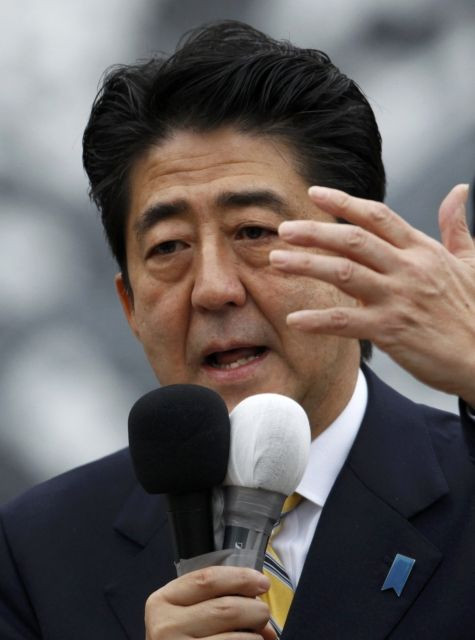Japan Hangs Three Convicts Resuming Executions Under Shinzo Abe Government

Japan hanged three convicts on death row Thursday, the nation’s first since a conservative government led by Prime Minister Shinzo Abe was elected in December.
Japan traditionally carries out several executions at a time. These are the first set of executions since September 2012.
Kaoru Kobayashi, 44, killed a seven-year-old girl and sent a photograph of the dead body to her mother in 2004, AFP reported. Kobayashi admitted the abduction, sexual assault and murder of the girl whose body was found in a gutter in western Japan.
Masahiro Kanagawa, 29, was convicted for killing one man and injuring seven others outside a shopping mall in a Tokyo suburb in 2008. He murdered another man in a separate incident the same year.
The third was Keiki Muto, 62, who strangled a bar owner for money in 2002.
The three were put to death in the early hours of Thursday, the Justice Ministry said.
"I ordered the executions after giving careful consideration to the matter," Justice Minister Sadakazu Tanigaki told a press briefing in Tokyo, as reported by AFP. "These were extremely cruel cases in which victims were deprived of their precious lives for very selfish reasons.”
Human rights group Amnesty International condemned the executions as “ominous and regressive,” adding that it raised the “fears that the pace of executions may increase during Prime Minister Abe’s term.”
“The authorities appeared alarmingly merciless in their willingness to execute during Shinzo Abe’s previous stint as Prime Minister,” Roseann Rife, Head of East Asia at Amnesty, said in a statement. “The fear is that this marks the beginning of a new wave of cold-blooded killing by the State. It raises serious questions whether such executions are carried out purely for political expediency.”
Ten people were hanged in less than a year during Abe’s previous term between September 2006 and September 2007, according to Amnesty. With the current justice minister publicly expressing his support for the death penalty, there is the concern that this number might be surpassed, the rights group’s statement added.
Earlier this year, Tanigaki indicated that he would not hesitate to sign execution orders unlike some of his predecessors who had refused to approve them, leading to a de facto moratorium on executions, according to a Guardian report.
"I will have to do what needs to be done according to the rule of law," he had said, adding that the secret nature of hangings would continue. Convicts are given a short notice before they are led to the gallows and their families are informed only after the execution.
"Even death row inmates have guarantees of privacy and we have to consider the feelings of their relatives," Tanigaki had said. "I don't think it is necessarily a good idea to release more information."
© Copyright IBTimes 2025. All rights reserved.





















